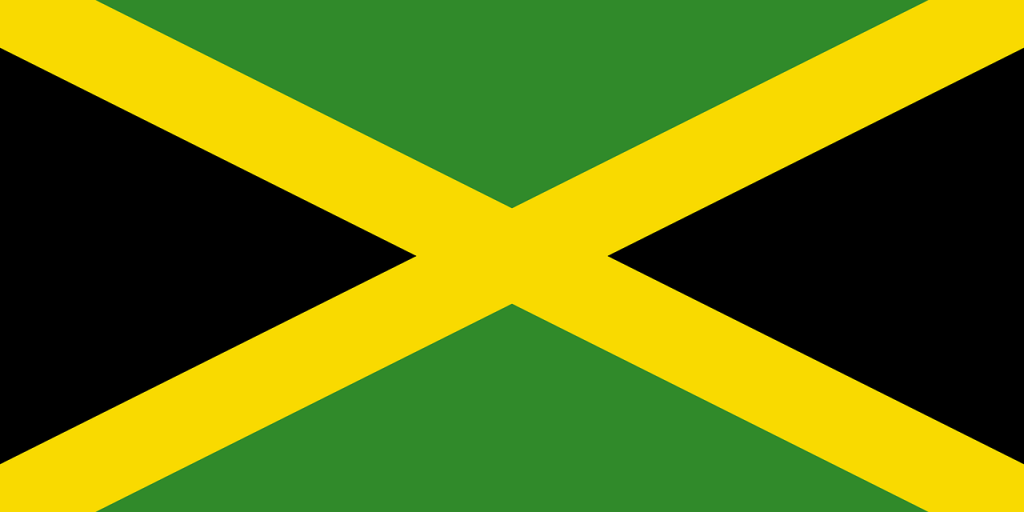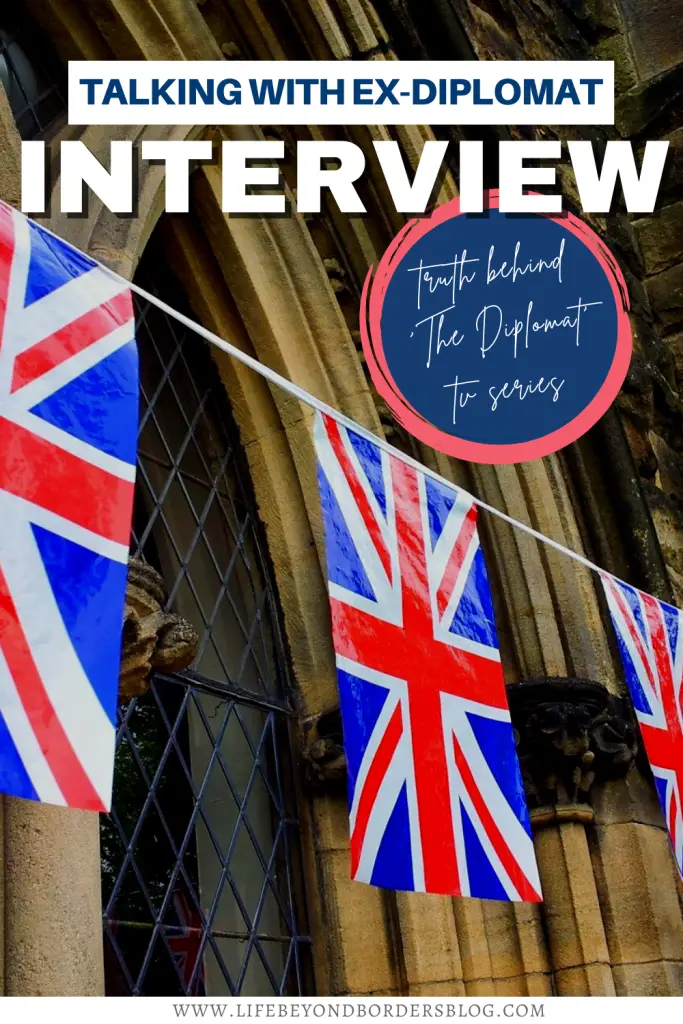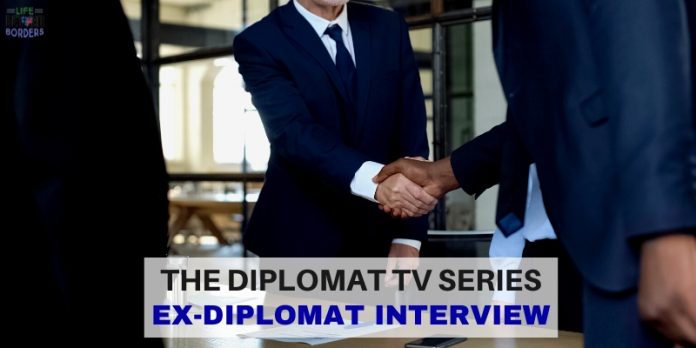As anyone who has watched the recent Alibi TV series “The Diplomat”, as I have, maybe you’re wondering; is that how daily life is like as a diplomat?
For the uninitiated, The Diplomat–a British political thriller with some quite madcap and tongue in cheek moments, it has to be said–follows the daily life of a British diplomat in Barcelona and how she gets British people on holiday out of scrapes. As they maintain: ‘Our job is to protect the interests of all British citizens, regardless of their stupidity’ aka regardless of how drunk they get, whether they break the law, etc. There are new problems to solve every episode with an underlying ongoing subplot.
So it was wonderful to link up with an ex-British diplomat who expressed some frustrations at the series, claiming in response to a tweet I posted that they, too, enjoyed it but as an ex-diplomat themselves, often wanted to shout at the screen ‘That’s not how we did/do things!
As with all things TV, reality must be jazzed up a bit–so it’s with great pleasure ‘X’ has agreed to be interviewed
So I know you’re not a serving British diplomat now, but can you tell us a bit about where you did serve and what time periods?
I joined the UK Foreign Office in 1999 – my first job was in the United Nations Department (UND) which, with its complicated terminology and never ending negotiations over every single word in every text, showed me how detailed and particular the work could be! However, it did allow me to visit the UN in New York on a couple of occasions and represent the UK, which was an incredible experience.
My background is in journalism so while working in this role, I started helping out in the News department at the weekends. So when I moved on from UND, this experience allowed me to become a press officer covering consular work in the Press Office of the FCO in London. I then moved into a management position while working in the press office where I covered a vast range of interesting, exciting, difficult and terrifying stories ranging from kidnaps to high profile arrests of British nationals overseas. I was also in this role when 9/11 happened which became the most intense period of my working life as we answered countless press enquiries and worked night and day to try and find out how many British people were involved and offer our assistance to their families and loved ones. The week after that terrible day I flew out to New York to take over for our press colleagues there while they took a break following that very traumatic period for them. Seeing the towers still smoking and meeting some of the incredible families who had lost loved ones is something I won’t ever forget.
Onwards and upwards
After my stint in the News Department I was lucky enough to get a posting to Kingston, Jamaica in a role as a 2nd Secretary Political and Economics. Most of my work revolved around our drugs and crime policies, liaising closely with the Jamaican government, the police and army, local and UK-based NGO’s, and with colleagues in several other Government departments and law enforcement agencies.
I was in Jamaica from 2002 – 2006 and during that time I met my now husband, became pregnant and gave birth to our first daughter. We returned to the UK and eventually I resigned from the FCO. We had a second daughter and continued travelling with my husband’s job, to Pakistan, St Lucia and South Africa.
What was the process of being employed as a diplomat?
Lengthy! I remember sending in my application in early 1999 and eventually started working in the autumn of that year. Your original application is sifted and if you pass, you are invited to an Assessment Centre. I was lucky that I had also recently sat a similar assessment for the Government Information and Communications service which helped me understand the process. I can’t remember much about it but it almost certainly included an “inbox exercise” and some role play. A few years later I went through something similar to gain promotion within the Office.
After passing the Assessment Centre you’re called for an interview where they want to check you have the competencies they require for the job. This included giving a presentation – all I can remember is that mine was something to do with General Pinochet! But one tip I learned from my own father (who was also a diplomat) leading up to the interview was to read the Economist. It gives a great overview of world affairs.
Being accepted
I remember clearly the day I received the letter, giving me the news I’d been accepted. Apart from having children, it is the thing I’m probably most proud of in my life. I couldn’t believe I would now be able to call myself a diplomat! I had spent my childhood moving around the world with my parents–as mentioned, my father was a diplomat, so the idea that I would be able to carry on travelling and get paid for it made me very happy.
Spoiler if you’ve not seen The Diplomat!
The only thing left was to pass my medical and security interview. The security vetting is alluded to in the Diplomat – although we eventually realise she has been set up to fail by her boss. It’s probably similar to what you think it’s going to be – lots of questions about your finances as well as your past love life and drug taking etc. Luckily I am pretty boring so didn’t have any problems (although it’s worth noting it isn’t so much what you have or haven’t done, it’s what you tell them – and make sure you’re not hiding anything that could later be used against you!)
During your time as a diplomat in Jamaica, what were the more mundane aspects of your work, and are there any experiences that stand out?

Like many jobs, there’ll be a lot of long meetings, emailing, report writing and looking through accounts. Having had two children since, this period of my life is a bit of a blur but I do remember spending a lot of time trying to get people in the Jamaican government to return my calls! And that wasn’t because they didn’t want to – we had a pretty good relationship with them – but the culture there was very different to the one I was used to in London. It all took a lot longer than we wanted.
But I had a lot of fun as well. I helped organize royal visits, met ministers, had lots of working lunches and evening drinks, visited Barbados and Peru for training, learned so much about an incredible country and met a huge array of amazing people.
Hurricane Ivan
One experience which stands out perhaps for the wrong reasons is when Jamaica was hit by a category 5 hurricane – Ivan. It was pretty terrifying waiting for the huge storm to arrive, the eerie sound of hammering ringing round the island as shopkeepers boarded up. The night it hit, the Jamaican Prime Minister did a live “good luck” broadcast before they shut down all the power on the island – very apocalyptic! In the end the hurricane just brushed the side of the island but it did immense damage and the electrics were off for days. We experienced a couple more hurricanes before we left Jamaica, including one a few days before I went home to give birth to my daughter. That one co-incided with the awful July 5 bombings in London – it was very surreal sitting in a basement of a friend’s house, heavily pregnant, with the storm raging outside while we followed this terrible news from the other side of the Atlantic.
Having watched “The Diplomat” on Alibi, is there anything fundamental that stands out as being incorrect?
The most obvious one is that the main character appears to be acting like a TV detective, not a consul! I actually quite enjoyed it in the end but felt I had to suspend my disbelief about many aspects of the plot – not just how she seemed to be single handedly trying to solve all the crimes but the way she and her staff talked to the British nationals they were trying to help. Most FCO staff I knew, especially consular staff, weren’t that unprofessional! The staff seemed to also get far too involved in each separate case – given how many Brits visit Barcelona, they would never have time to do as much as they seemed to be doing.
We all know that TV and movies have to jazz up the mundane, but how would you have preferred certain aspects to have been portrayed?
Apart from having her spend more time in the office and less running around Barcelona trying to solve crime, the romantic liaisons seemed a bit pointless. I thought her issues with her long-distance boyfriend was quite realistic, but did she really need to get involved with the dodgy German criminal? I also thought it was strange that she took so long to work out her boss was a spook – we figured that out after about episode one!
You continued to travel after your service as a diplomat. What was your favourite country and why?
This is an easy one – South Africa, by a long shot. Partly I think because our children were older (they were 8 and 10 when we arrived and 10 and 12 when we left) so life generally was easier, but also because Pretoria is a great city for expats and South Africa is an absolutely stunning country. I think I need to get a job with the SA tourist board, I loved it so much. Of course there were some things about being there that were undeniably hard (the lingering issues still hanging over everything from the apartheid era, the oppressiveness of living somewhere with such a high violent crime rate, the poverty which was all around you). But our children went to a great school and as a family we made lots of really great friends who we spent a lot of time with; the people are really friendly and welcoming; the weather is almost perfect; the wildlife is out of this world; the food, the wine, the beaches, the travel opportunities….
What role are you undertaking now, and do you see any similarities with your diplomat role? Do you miss the civil service?
I now work as a Communications and Engagement Manager for a large UK charity. While we continued travelling with my husband’s job I had various part-time roles and freelanced as a journalist. When we settled back in the UK so our children could go to secondary school here I started working in Communications for a local charity, and haven’t looked back. The world of work has changed so much, though, from my time in the FCO – I now work remotely from home so hardly know my colleagues, while in the Foreign Office we worked and socialized together and knew each other really well. I miss that part of work but I don’t miss working for the civil service. I wouldn’t want to work there at the moment under this Government but I would consider it again in the future if things changed.
PIN for later


